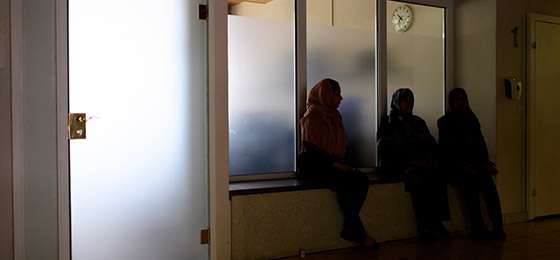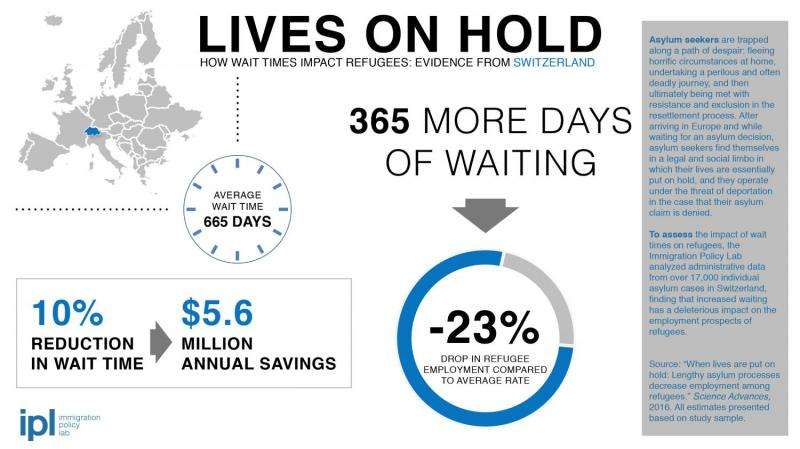Shorter asylum procedures reduce unemployment

Although refugees in Switzerland are allowed to take up employment while their asylum application procedure is still pending, a long wait reduces their chances of entering into employment. Researchers supported by the SNSF have now robustly quantified this negative effect for the first time.
On 5 June 2016, the Swiss electorate approved an accelerated asylum procedure. One of the arguments used at the time was that this would allow refugees to enter the job market more quickly and thus reduce the strain on the welfare system. Researchers supported by the Swiss National Science Foundation (SNSF) have now also been able to quantitatively demonstrate – for the first time worldwide – that refugees who are granted asylum quickly are indeed more likely to find employment.
For their study, Dominik Hangartner from the University of Zurich and the London School of Economics together with colleagues Jens Hainmueller and Duncan Lawrence from the Stanford-Zurich Immigration Policy Lab analysed refugee data in the migration information system maintained by the Swiss State Secretariat for Migration (SEM). As well as the duration of the procedure, the system also records employment information for provisionally admitted asylum seekers – for example, those fleeing the war zone in Syria – in the five years following their arrival.
"The probability of finding a job fell by one fifth, from 23 to 18 percentage points, when the applicants received the positive decision only at the end of the third year instead of the end of the second", says Hangartner. The negative impact of having to wait cannot be explained by other factors such as nationality, gender or age. "The strength of the effect is remarkable. We can safely assume that the longer they have to wait, the more discouraged the refugees become."

Towards evidence-based policymaking
The researchers took great care to ensure that they really were measuring the effect of the process duration. It could have been that these same people who were able to give good responses in SEM surveys also performed better in job interviews and thus also secured a job more quickly. This effect can be ruled out, however, as the process duration is mainly determined by administrative factors. More important still: in Switzerland, asylum seekers can take up employment during the admission process – after three to six months. If they exploited this opportunity, Hangartner and his colleagues found this had no influence whatsoever on the duration of the procedure. There are not more able people among the quickly accepted asylum seekers than among those who are held back for longer.
"This result may have been expected by some people", stresses Jens Hainmueller, "But speculations are one thing. Knowing how great an effect actually is, and thus being able to calculate the economic costs and benefits of a change in the law, is something entirely different." The authors have already made an initial, rough calculation: Reducing the wait time by 66 days (10 percent) in Switzerland would result in savings of more than 5 million Swiss francs in social benefits and higher tax revenue. In essence, this is a scientific contribution towards basing policy decisions on empirical data, including in the area of political asylum: "When emotions are running high, cool-headed calculations can show what works and what doesn't", says Hainmueller.
More information: J. Hainmueller et al. When lives are put on hold: Lengthy asylum processes decrease employment among refugees, Science Advances (2016). DOI: 10.1126/sciadv.1600432
Journal information: Science Advances
Provided by Swiss National Science Foundation

















